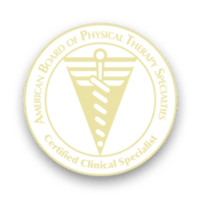Neurologic conditions are difficult to diagnose. For this reason, misdiagnoses remain a problem. The number of cases is NOT important. ONE case (of a misdiagnosis) has damaging consequences. It impacts the emotional, financial, and physical health of someone, somewhere. That one person could be you. Is there any value in seeking a second opinion? What will it cost to undergo an unnecessary treatment? What about the emotional cost of thinking you have a condition…….you don’t. Getting a second opinion can give peace of mind, and prevent unnecessary, and costly, treatment.
Is it ok to seek a second opinion? Will your doctor be upset? Will your insurance pay for this? These are valid concerns that might prevent someone from making this decision. No worries, here we will put some of those fears to rest. You will also learn the many reasons this is, NOT ONLY a “good idea”, but a critical step before starting treatment.
Why Seek a Second Opinion?
Doctors sometimes get it wrong. Don’t believe this? In 2013, experts report “misdiagnosing Multiple Sclerosis (MS) has remained a frequent problem.”1 In 2006 Jain, S et al. reported that 1 in 3 patient’s, initially diagnosed with essential tremors, were later found to have Parkinson’s Disease2.
Knowing the medical community reports this as a “frequent problem”, should you accept the first diagnosis? If you think “no”, what is stopping you from getting a second opinion?
First, let’s address the fears.
You are NOT a “difficult patient”
First and foremost, seeking a second opinion is not a betrayal. IT IS A GOOD thing. Not convinced? Think about this. Generally speaking, doctors go into medicine to help people. That being said, doctors want their patients to get better. Knowing this, it is easy to conclude that they would want a confirmation that their diagnosis is correct.
It should NOT cost you
Most insurance companies pay for a second opinion. ALWAYS check with an insurance company first. When dealing with an insurance company, it is important to “cross the “T”s and dot all the “I”s. This is critical to prevent a denial and receive a bill. 🙂
Reasons to Seek a Second Opinion
Is a second opinion really necessary? It is understandable to have some reservations. It may be (the thought of) being pricked, probed, and analyzed for a second time. Equally concerning, is the trouble of finding another specialist. Additionally, some may find relief they FINALLY, have an answer (for the neurological symptoms). With this in mind, many may start treatment after the first diagnosis. Never the less, there are several “red flags” (regarding your diagnosis) that should not be ignored. With this in mind, here are the reasons to strongly consider a second opinion.
The treatment is expensive or experimental
Disease-specific medications are extremely expensive. Consequently (depending on the insurance provider), this could come with a high “out of pocket” price tag. That being said, a second opinion may prevent spending hard-earned money on an unnecessary treatment.
The medication has side effects
Some medications have side effects, such as, suppressing the immune system. Similarly, high dose steroids can cause blurred vision, difficulty sleeping, weight gain, and high blood pressure. Rest assured, the side effects (in most cases) are worth it when it comes to the benefits of treating a condition. In contrast, suffering (side effects) for an UNNECESSARY treatment, has NO benefit.
Treatment is invasive
Anyone who has had surgery, knows about the lengthy (somewhat frightening) consent (of ALL the potential risks). For example “this procedure may result in cardiac arrest, stroke, anoxic brain injury, long term life support and death.” Look familiar? Yes, general anesthesia comes with many risks. At the same time, a neurologic condition may require a shunt, blood vessel repair, a stent, a device implants, etc. These procedures have additional risks. So again, how valuable is a second opinion prior to undergoing a risky treatment?
You were diagnosed in the first visit
Many neurologic conditions are extremely difficult to diagnose. This makes the assessment process similar to solving a puzzle. This includes (diagnostics) to rule things out, trialing a treatment, monitoring the evolution of symptoms….etc. This takes time. This also requires SEVERAL visits to a specialist.
Diagnosed in the Hospital
The hospital is great because teams of doctors are available. Although this may be true, hospitals (inpatient) are designed to address medical emergencies. As a result, less attention is provided to “non-critical” patients. This may result in a hasty diagnosis.
You have been told “It’s all in your head”
Yes, hypochondriasis, conversion disorders, and anxiety disorders can cause neurologic symptoms. Although this may be true, a second opinion can be valuable. First and foremost, knowing there is NOT a neurologic condition, may help such disorders. Moreover, maybe there IS a neurologic condition and something was missed during the first assessment.
What do you need to know when seeking a second opinion?
- You may be required to repeat tests
- Check with your insurance company regarding your benefit on seeking a second opinion
- Do your research: There are hospitals that specialize in neurologic conditions. Avoid going to the clinic closest to your city or town. Find the “big” centers in major cities. They will have seen the highest volume of patients with your symptoms. Their experience is worth the time and travel.
Where is the best place to go for a second opinion?
Some hospitals are “model centers” for Neurologic diseases and movement disorders. These facilities are the best at performing a thorough evaluation and coming up with an accurate diagnosis. One, they attract some of the best doctors in the country. Second, they attract patient’s from all over the world. By default, this makes them the MOST experienced. Third, they are always conducting research studies. This third and final reason is two-fold. Research is known to help in clinical decision making. Additionally, you may be a candidate for one of their research studies.
Check out these places for more information
Mayo Clinic – Movement Disorders
John Hopkins – The Parkinson’s Disease and Movement Disorders Center
Baylor Health – Parkinson’s Disease and Movement Disorders Clinic
References
- Solomon AJ, Weinshenker BG. Misdiagnosis of multiple sclerosis: frequency, causes, effects, and prevention. Current neurology and neuroscience reports. 2013;13(12):1-7. doi:10.1007/s11910-013-0403-y.
- Jain S, Lo SE, Louis ED. Common Misdiagnosis of a Common Neurological Disorder: How Are We Misdiagnosing Essential Tremor?. Arch Neurol.2006;63(8):1100–1104. doi:10.1001/archneur.63.8.1100







